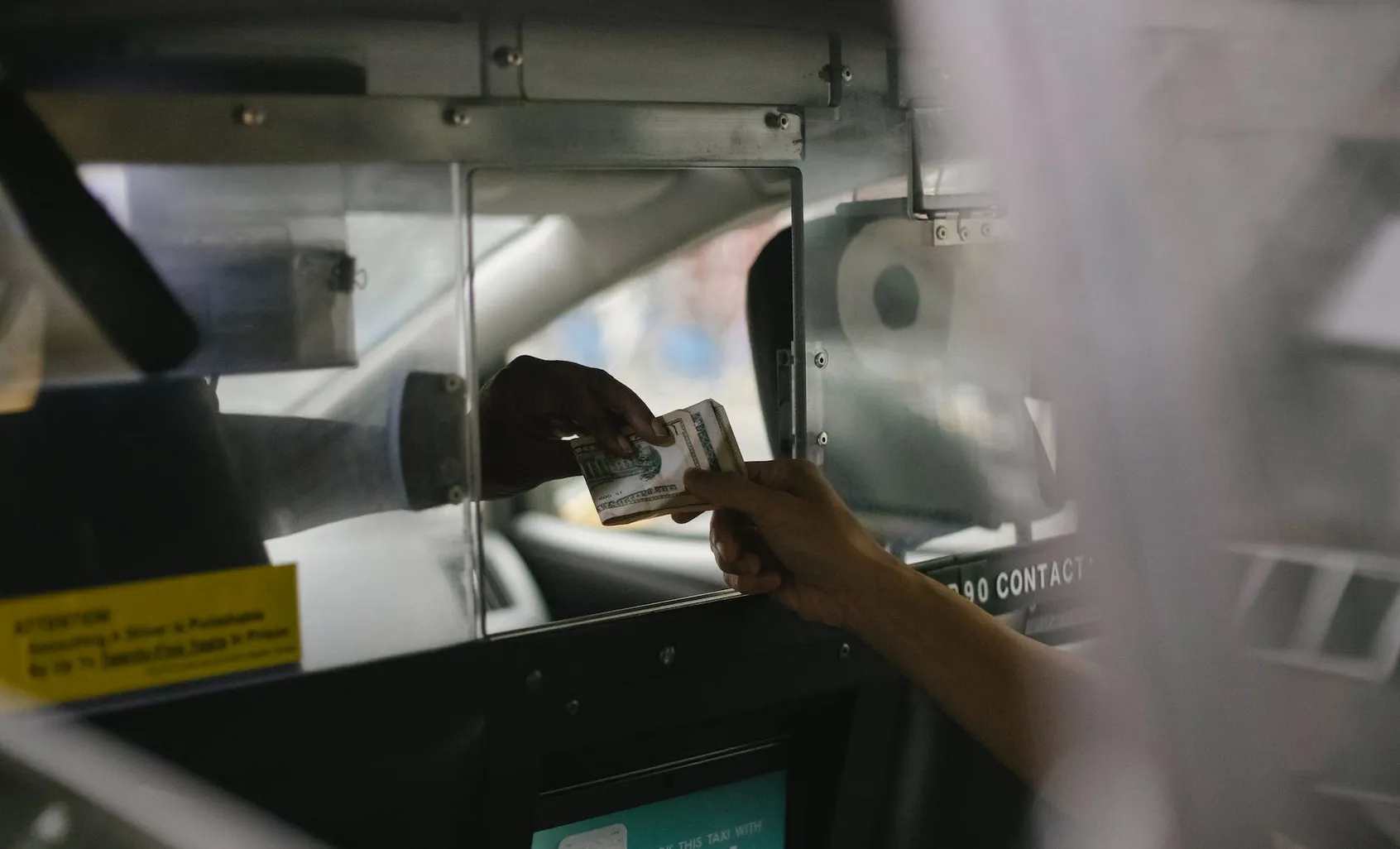Can I get engaged while going through a divorce? Depending on the situation and the state’s laws, it is a difficult question where divorce occurs. It is important to consider all aspects of the situation before deciding.
This article will discuss the potential legal and emotional implications of getting engaged while going through a divorce and provide considerations for those considering this path.
Can I Get Engaged While Going Through A Divorce?
Generally speaking, getting engaged while going through a divorce is not recommended because it can complicate matters and potentially cause more emotional distress. Getting engaged while going through a divorce can be difficult and complex.
The couple is usually no longer legally married once the divorce papers have been filed. This means that any marriage contract, or engagement, is considered void. As such, any marriage that takes place while the divorce is pending could be considered illegal. This could result in legal issues for the couple, especially if the terms of the marriage contract are not in line with the divorce terms.
The emotional toll of getting engaged during a divorce can also be difficult to bear. It is important to remember that the divorce process is a difficult and emotional time, and, likely, both parties involved are still dealing with the pain of the breakup. If one of the parties decides to get engaged during the divorce process, it could create tension and hurt feelings on both sides. It could also potentially cause further damage to an already fragile relationship.
In some cases, however, getting engaged during a divorce is possible. If both parties agree and the divorce has been finalized, it is possible to get engaged and proceed with a marriage. However, it is important to note that the couple must wait a certain amount of time in certain states before they can legally marry. This is typically done to ensure that both parties have time to consider the decision and make sure it is the right decision for both.
The decision to get engaged while going through a divorce is serious and should not be taken lightly. It is important to remember that divorce is difficult and emotional, and both parties must consider their emotions and the potential legal implications before making any decisions. Ultimately, it is up to the couple to decide if getting engaged while going through a divorce is the right decision for them.

Potential Issues With Getting Engaged During Divorce
The potential issues with getting engaged during a divorce can be numerous and complex.
One of the first issues to consider is the timing of the engagement. Depending on the state, a person may need to wait until the divorce is finalized before getting engaged. This can be difficult for some couples, as emotions and feelings can change during a divorce.
Additionally, if a couple is still legally married when engaged, the engagement may be considered a ‘fraudulent contract,’ and any assets or money exchanged could be revoked.
In addition to the legal issues, there are social and emotional issues to consider. If a couple gets engaged while going through a divorce, the existing spouses may not be happy about the engagement. This can create much tension and may even lead to legal repercussions. The new fiancé may be seen as an interloper and even be accused of breaking up the marriage.
Finally, there can be emotional issues for the couple getting engaged. Moving on from a divorce while committing to a new relationship can be difficult. It’s important to give yourself time to heal and process the emotions from the divorce before getting into a new relationship. If a couple decides to get engaged while going through a divorce, it is important to take it slow and ensure that both parties are emotionally ready for the commitment.
Benefits Of Waiting Until After Divorce To Get Engaged
When deciding to get engaged while going through a divorce, it is important to consider the benefits of waiting until after the divorce process. Although some couples choose to move forward with their engagement during their divorce, there are several advantages to waiting until the process is over before making such a significant commitment.
- One of the primary advantages of waiting until after the divorce is that the couple can focus on their individual needs and goals. During a divorce, the couple often focuses on the legal proceedings, documents, and agreements that must be signed and finalized. This can be incredibly stressful and emotional for both parties and getting engaged during this time can cause added stress and confusion. By waiting until the divorce is finalized, the couple can spend more time focusing on themselves and their individual needs rather than worrying about a future engagement.
- Another benefit of waiting to get engaged until after a divorce is that the couple can build a stronger foundation for their future together. During a divorce, the couple often deals with the pain of the past and the emotions associated with the end of a marriage. By allowing themselves time to heal and move on from the past, the couple can build a stronger relationship and more clearly define their needs and expectations for the future. This can help them create a solid foundation for a successful engagement and marriage.
- Finally, waiting until after the divorce is complete can help to ensure that the couple’s engagement and marriage are less likely to be affected by the legal proceedings of the divorce. During a divorce, it is not uncommon for legal proceedings to impact the couple’s financial situation, custody arrangements, and other issues. By waiting until the divorce is finalized, the couple can avoid any potential complications from the legal proceedings.
How To Manage Family Reactions To An Engagement During Divorce?
When considering an engagement with someone during a divorce, it is important to consider how family and friends will receive this decision. Some steps can be taken to manage the reactions of family and friends and make the transition smoother.
- First, it can be helpful to talk to close friends and family members to explain the situation and discuss the reasons for the engagement. Doing this can help show that this is a decision that has been thoughtfully considered and not a rash decision. It can also help to ease any negative reactions that they may have.
- Second, it is important to be aware of any legal implications of the engagement in the divorce proceedings. Depending on the laws of the particular state or country, the engagement may be considered a form of reconciliation and could affect the divorce settlement. Consulting with a lawyer before getting engaged can help avoid additional complications.
- Third, it is important to consider how the decision to get engaged affects any children involved. It can be beneficial to involve the children in decision-making and be honest with them about the situation. This can help them to understand why it is happening and allow them to express their feelings.

How To Handle Finances During An Engagement During Divorce?
Many couples decide to get engaged to a new partner when going through a divorce. This can be an exciting yet challenging life transition, as divorce and engagement can be stressful and overwhelming. Managing your finances correctly during this period is important, as your decisions now can have long-term implications.
- First, you should consider your current financial situation and how it will be affected by your engagement. If you currently receive alimony or child support from your soon-to-be-ex-spouse, carefully consider how your engagement and marriage to a new partner might affect your financial situation. If you are concerned about the impact of your engagement on your financial situation, it is best to consult with a financial advisor.
- Second, you and your partner should discuss your financial expectations and goals. Are you both on the same page regarding budgeting and saving? Do you have similar spending habits? These conversations can help you avoid potential money issues in the future. Additionally, it is important to consider how your partner’s financial situation could affect you. For example, if your partner has much debt, it is important to understand how this could impact your finances.
- Finally, being aware of how prenuptial agreements can affect your financial situation is important. If you are already married or in the process of getting married, a prenuptial agreement can ensure that your assets remain separate and protect you in the event of a divorce. If you are not yet married, you may consider having a prenuptial agreement drawn up to protect your and your partner’s finances.
Strategies For Discussing An Engagement During Divorce
When it comes to discussing an engagement during divorce, it can be a difficult and delicate topic to navigate. There are a few strategies to consider when discussing an engagement during divorce that can help make the process smoother.
- First, it is important to recognize that this is a highly emotional time for all involved, so it is important to be mindful of the feelings of all parties.
- The second strategy is to be open and honest about the process and to set clear expectations with the other parties involved.
- It is also important to seek legal advice to ensure that all parties are informed of the potential legal implications of an engagement during the divorce.
- Finally, regarding an engagement, it is important to be open and honest with all parties involved in the divorce, including the other party’s attorney. This can help ensure that all parties involved are on the same page and that the engagement is handled respectfully and appropriately.
How To Cope With Emotional Challenges Of Engagement During Divorce?
When considering engaging in a relationship while going through a divorce, it is important to be mindful of the emotional challenges that may arise. With the strain of a marriage ending, it can be difficult to know how to move forward and make a decision that is best for all involved. It is important to weigh the pros and cons of getting engaged during a divorce and seek professional advice and support.
One of the most important considerations when getting engaged during a divorce is to be aware of the emotional cost that may come with it. A divorce can be a tumultuous time, and it is important to be mindful of the potential for emotions to run high.
It is important to be honest with yourself and your partner about any unresolved feelings about your former spouse and be sure to express them healthily. It is also important to be aware of the potential for the new relationship to be negatively affected by the residue of the former one.
It is also important to ensure that the decision to engage during a divorce is consensual. It is important to ensure that all parties involved are comfortable with the decision and that the relationship is entered with the best intentions. It is also important to ensure both parties are emotionally ready to move forward with a new relationship.
Additionally, it is important to communicate any concerns or worries with your partner and ensure that both parties are clear on their expectations of the relationship.
Finally, it is important to consider seeking professional advice and support when considering getting engaged during a divorce. A professional can be a valuable resource in providing guidance and support in navigating the emotional challenges of a divorce.
Additionally, a professional can provide valuable insight into the potential risks and benefits of getting engaged during a divorce and provide a safe and supportive space to discuss any concerns or worries.

The Impact Of Children On Engagement During Divorce
Engaging in a relationship while going through a divorce can greatly impact children. The ongoing divorce process is already difficult for the children to understand, and when a parent becomes engaged to someone else, it may add additional stress and confusion for them.
Depending on the age of the children, they may feel that their parent is moving on too quickly or that their parent no longer loves them. It is important to speak to the children and explain that the new relationship will not replace them in their parent’s life and that the new partner is not trying to take their parents away from them.
It is also important to consider how soon after the divorce the engagement occurs. In some cases, the new partner may have been part of the family before the divorce, so the children may already be familiar with them. In other cases, it may be too soon after the divorce to engage in a new relationship, as the children may be unable to comprehend that their parent is in a new relationship.
It is also important to consider how the new partner interacts with the children. The new partner needs to be patient and understanding. It is also important for the new partner to respect the children’s boundaries and not try to take the other parent’s place. The new partner should also encourage and support the children and try to befriend them.
Finally, being honest and open with the children about the new relationship is important. Children should be allowed to ask questions and express concerns or worries about the new relationship. Furthermore, the children must understand that the new relationship does not change their parent’s love for them and that the new partner is not trying to take their parents away.
How To Avoid Conflict While Engaged During Divorce?
First, be sure to candidly discuss your potential future spouse about your current divorce proceedings. It is important to understand their feelings and expectations before getting engaged and to ensure they are comfortable with the situation. If they are not, it might be best to wait until the divorce is finalized before getting engaged.
Next, ensure you are not engaging in any activities that could be considered inappropriate during a divorce. This includes being seen publicly with your new partner or discussing the engagement until the divorce proceedings are complete. It is also important to respect your former spouse and not use the engagement to hurt them or try to gain leverage in the divorce.
Finally, it is important to understand the legal implications of getting engaged during a divorce. Be sure to consult with your lawyer to ensure the engagement has no negative implications for your divorce proceedings. This could include property division or child custody issues, so it is best to get all the facts before deciding.
How Soon Is Too Soon To Get Engaged After Divorce?
Many people wonder if they can get engaged while going through a divorce. The answer to this question is complicated, as it depends on the individual and their circumstances. There are a few things to consider before deciding to get engaged while in a divorce.
First, it is important to consider the legal implications of getting engaged while in a divorce. Depending on the state’s laws and the divorce terms, it may not be wise to get engaged until the divorce is finalized. For example, in some states, a spouse can be awarded a portion of their former partner’s assets if they get engaged or remarried before the divorce is finalized. In addition, if a person gets engaged while in a divorce, it could be seen as a sign of bad faith to the other spouse.
It is also important to consider the timing of getting engaged after a divorce. It is likely too soon to get engaged immediately after a divorce, as emotional wounds are still healing, and the healing process is different for everyone. Additionally, it is important to ensure that both parties have adequately worked through their feelings of hurt and betrayal before beginning a new relationship.
Additionally, it is important to be honest with oneself and the potential partner about the reasons for the engagement. It is important to ensure that the engagement is not a reaction to the divorce but a decision made out of love and commitment. It is also important to make sure that the decision is based on a desire to begin a healthy relationship rather than to use the engagement as a form of escape or distraction.
Conclusion
In conclusion, becoming engaged while going through a divorce is possible. However, it is important to remember that becoming engaged during a divorce can be complicated and may present several legal and emotional challenges.
Suppose you are considering becoming engaged while going through a divorce. In that case, consulting with a family law attorney familiar with your state’s laws regarding marriage and divorce is best. This will help protect your rights and interests throughout the process.
Frequently Asked Questions:
Can you get engaged to someone while going through a divorce?
No, you cannot engage someone while going through a divorce. In most cases, entering into a new relationship while you are still in the process of ending a marriage is not advisable.
Can you get engaged before you get married?
Yes, you can get engaged before getting married.
Can I move in with my boyfriend while going through a divorce?
Moving in with your boyfriend while going through a divorce is not advisable. Living together while married can have legal implications and affect the divorce proceedings’ outcome. You should consult a family law attorney to discuss the potential risks and determine whether or not it is in your best interest to move in with your boyfriend.
Is it okay to stay engaged and not get married?
Yes, staying engaged and not getting married is completely acceptable. Every couple’s situation is unique, and it is up to them to decide what works best for their relationship.
How long does a divorce take?
The time it takes to get a divorce varies widely depending on the jurisdiction, the case’s complexity, and whether the parties have reached an agreement. The process can generally take anywhere from a few months to a year or more.
What are the grounds for divorce?
The grounds for divorce vary depending on the jurisdiction. In general, divorces can be granted on fault or no-fault grounds, with fault-based grounds including adultery, cruelty, and addiction, and no-fault grounds being based on irreconcilable differences or a broken marriage. Separation periods may be required depending on the jurisdiction, and it is important to consult with a lawyer for specific requirements and procedures.
